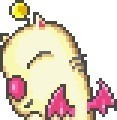毎年 -- まいとし vs. まいねん
After a recent thread about knowing which readings to use for kanji, the current 'recent echo' is interesting.
The post is about vocabulary lesson chapter 7 毎年 having 'まいとし' furigana and 'mainen' roumaji. The roumaji has now been changed to 'maitoshi' to match the furigana.
As I understand it, まいとし is the more common reading anyway, but the book I'm reading only lists まいねん for meaning 'every year'.
(The book is old though, as it was bought in Tokyo in 1986 -- 'Japanese for Beginners' by Gakken)
Anyway, I thought it would be interesting to look at some more 'adverbials of frequency' and the chosen kanji readings.
I've tried to first use what I can find in the lessons, if possible. For the rest, I picked whatever I've guessed to be the most common...
[LAST x ; THIS x ; NEXT x ; EVERY x]
-day:
昨日 'kinou' ; 今日 'kyou' ; 明日 'ashita' ; 毎日 MAI・NICHI
-week:
先週 SEN・SHUU ; 今週 KON・SHUU ; 来週 RAI・SHUU ; 毎週 MAI・SHUU
-month:
先月 SEN・GETSU ; 今月 KON・GETSU ; 来月 RAI・GETSU ; 毎月 MAI・tsuki
-year:
去年 KYO・NEN (先年 SEN・NEN) ; 今年 KO*・toshi ; 来年 RAI・NEN ; 毎年 MAI・toshi
-morning:
昨朝 SAKU・CHOU ; 今朝 'kesa' ; 明朝 MYOU・CHOU ; 毎朝 MAI・asa
-evening/night:
夕べ yuu・be ; 今晩 KON・BAN ; 明晩 MYOU・BAN ; 毎晩 MAI・BAN
---
DICTIONARY: http://www.jisho.org
昨 - SAKU
先 - SEN, saki
去 - KYO, KO
今 - KIN, KON, ima
明 - MYOU, MIN, MEI
来 - TAI, RAI, ki, ko
毎 - MAI, goto
週 - SHUU
月 - GATSU, GETSU, tsuki
年 - NEN, toshi
日 - JITSU, NICHI, hi
朝 - CHOU, asa
晩 - BAN
夕 - SEKI, yuu
---
・ = kanji reading separator
UPPER CASE = 音読み「おんよみ」
lower case = 訓読み「くんよみ」
'quoted' = 熟字訓「じゅくじくん」-- special reading of whole kanji compound.
The post is about vocabulary lesson chapter 7 毎年 having 'まいとし' furigana and 'mainen' roumaji. The roumaji has now been changed to 'maitoshi' to match the furigana.
As I understand it, まいとし is the more common reading anyway, but the book I'm reading only lists まいねん for meaning 'every year'.
(The book is old though, as it was bought in Tokyo in 1986 -- 'Japanese for Beginners' by Gakken)
Anyway, I thought it would be interesting to look at some more 'adverbials of frequency' and the chosen kanji readings.
I've tried to first use what I can find in the lessons, if possible. For the rest, I picked whatever I've guessed to be the most common...
[LAST x ; THIS x ; NEXT x ; EVERY x]
-day:
昨日 'kinou' ; 今日 'kyou' ; 明日 'ashita' ; 毎日 MAI・NICHI
-week:
先週 SEN・SHUU ; 今週 KON・SHUU ; 来週 RAI・SHUU ; 毎週 MAI・SHUU
-month:
先月 SEN・GETSU ; 今月 KON・GETSU ; 来月 RAI・GETSU ; 毎月 MAI・tsuki
-year:
去年 KYO・NEN (先年 SEN・NEN) ; 今年 KO*・toshi ; 来年 RAI・NEN ; 毎年 MAI・toshi
-morning:
昨朝 SAKU・CHOU ; 今朝 'kesa' ; 明朝 MYOU・CHOU ; 毎朝 MAI・asa
-evening/night:
夕べ yuu・be ; 今晩 KON・BAN ; 明晩 MYOU・BAN ; 毎晩 MAI・BAN
---
DICTIONARY: http://www.jisho.org
昨 - SAKU
先 - SEN, saki
去 - KYO, KO
今 - KIN, KON, ima
明 - MYOU, MIN, MEI
来 - TAI, RAI, ki, ko
毎 - MAI, goto
週 - SHUU
月 - GATSU, GETSU, tsuki
年 - NEN, toshi
日 - JITSU, NICHI, hi
朝 - CHOU, asa
晩 - BAN
夕 - SEKI, yuu
---
・ = kanji reading separator
UPPER CASE = 音読み「おんよみ」
lower case = 訓読み「くんよみ」
'quoted' = 熟字訓「じゅくじくん」-- special reading of whole kanji compound.
posted by mog86uk

